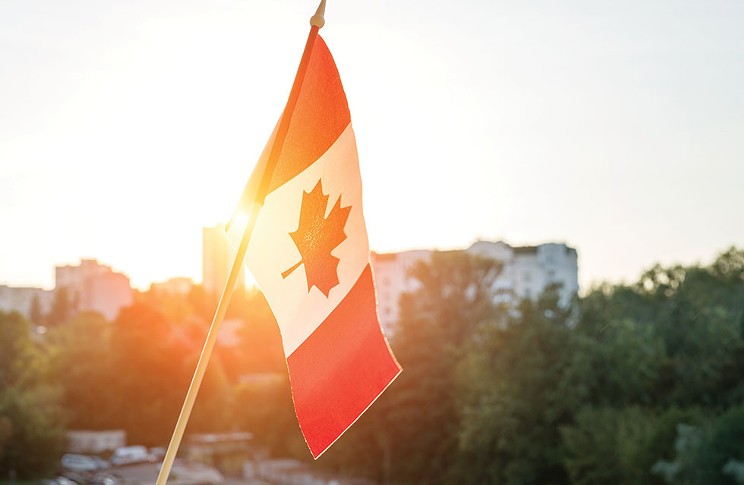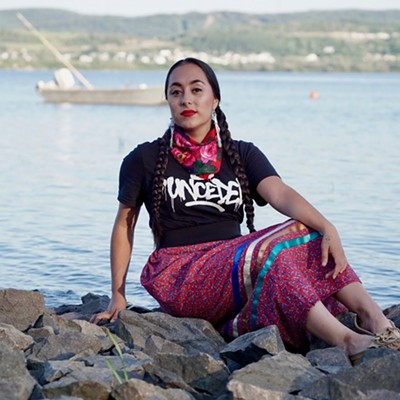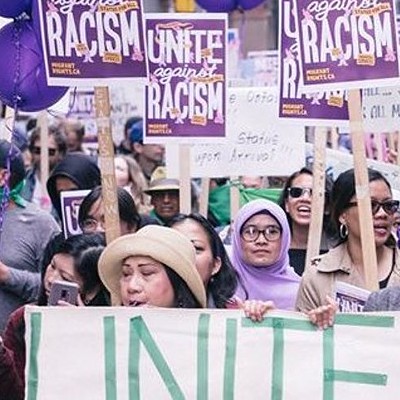It's easy to talk abstractly about cancelling Canada Day—to share tweets and hashtags and Instagram graphics—but more useful to actually take action. The large-scale conversations we’re having about the holiday’s relationship with colonial violence are long overdue: many Indigenous people have been spearheading them for years, and it shouldn't have taken the discovery of so much tragedy to get here.
If you're wondering what cancelling or reworking Canada Day actually looks like, here’s a primer on the actions being taken by some municipalities, businesses and individuals across the country. More than anything, it's important to listen to Indigenous people, elevate their voices and follow their lead.
MUNICIPALITIES
The action being taken by towns and cities across the country has been mixed, to say the least. While some municipalities seemingly aren’t cancelling or changing their programming in response to the unmarked graves found at residential schools, others are taking a hard stance to encourage reflection, education and mourning.
Looking at you, Halifax. We got communities across this country cancelling Canada day celebrations to reflect on what this country has done to Indigenous people. Be Bold, Halifax. Be a leader.
— Rebecca Thomas (@beccaleat) June 25, 2021
Despite calls for Halifax to follow suit, the city’s own response has been tepid at best. Early Friday evening, the city government’s Twitter account stated that Canada Day events hadn't been planned because of the pandemic, but that they encourage “residents to use this day to reflect on our shared history and collectively recommit to a stronger future built upon meaningful reconciliation efforts with Indigenous peoples.”
Canada Day events were not planned as a result of COVID-19 public health restrictions. We encourage residents to use this day to reflect on our shared history and collectively recommit to a stronger future built upon meaningful reconciliation efforts with Indigenous peoples.
— hfxgov (@hfxgov) June 25, 2021
As many have pointed out, this tweet (and all the statements that have followed) are mild. They entirely shield the decision not to host Canada Day events behind the pandemic, seemingly trying to stay as neutral as possible. Though it encourages reflection, the city isn’t actually taking any meaningful step towards reconciliation or reflection itself.
In response to an email from The Coast asking what this means for future Canada Days, the city’s public affairs office responded: “There is opportunity to reimagine all municipal event programming for Canada Day in future years. We will continue to work with members of the Indigenous community to find opportunities through events to learn our shared history, reflect on the past and move forward together.”
BUSINESSES
Many businesses have long had a relationship with Canada Day, whether that means offering special deals for the holiday, throwing a flag in the front window or simply wishing people a happy one on social media. This year, many are opting for very different programming, focusing on how best to support the Indigenous people in their communities and using their platforms to share resources and messages of solidarity. The Biscuit Eater in Mahone Bay is one of these, closing its shop on July 1 as a show of respect and solidarity.
Beyond small businesses, larger organizations are also taking action. Over 400 radio stations across the country will also be handing the mic over to Indigenous voices for 12 hours on June 30 as part of “A Day to Listen,” sharing stories from Indigenous artists, leaders and more throughout the day.
INDIVIDUALS
There's a push for people to wear orange—the colour associated with remembering residential schools—on Canada Day as a show of solidarity with Indigenous communities and resistance against celebration. The idea has taken hold across social media, and can be a meaningful way to show support without taking up space.
The truth of Residential Schools - children were physically, emotionally, spiritually, mentally, & socially traumatized from age 4 to 18 Indigenous kids suffered unimaginable pains. Tomorrow’s announcement will be the 2nd in a month #OrangeShirtJuly1 /1
— Dr. Angela Mashford-Pringle (@armp71) June 24, 2021
If there are Canada Day celebrations in your area, staying home or finding alternative programming to attend is best. Spend the money that might have gone towards face paint and red t-shirts on financially supporting Indigenous initiatives. The Indigenous Residential School Survivors Society and Ku’ku’kwes News, an independent Indigenous news source in Atlantic Canada, are good places to start.
Non-Indigenous folks - do not asks Indigenous friends and colleagues for our time and energy. Do not ask us what you can do. Do not burden us with your guilt. Amplify our voices. Commit to the work. Call for the truth. Deeply listen to survivors. Take action.
— Dr. Kisha Supernant says truth first. (@ArchaeoMapper) June 24, 2021
Finally, if you’re non-Indigenous, do everything you can to uplift Indigenous voices—without speaking over them or expecting free education. Educate yourself on the history of colonial violence in this country using the online resources available to you; listen to and share what Indigenous people are saying; understand that they don't owe you their time or energy.


















